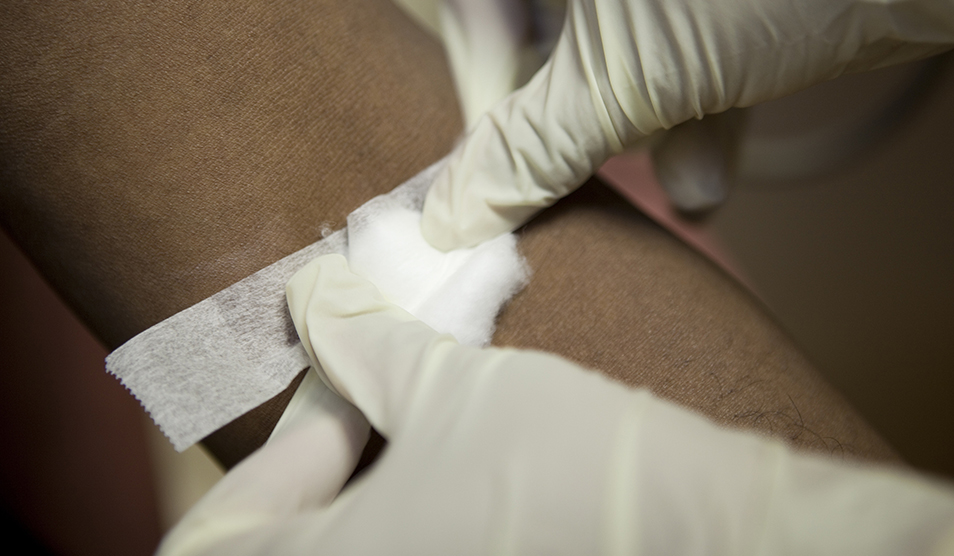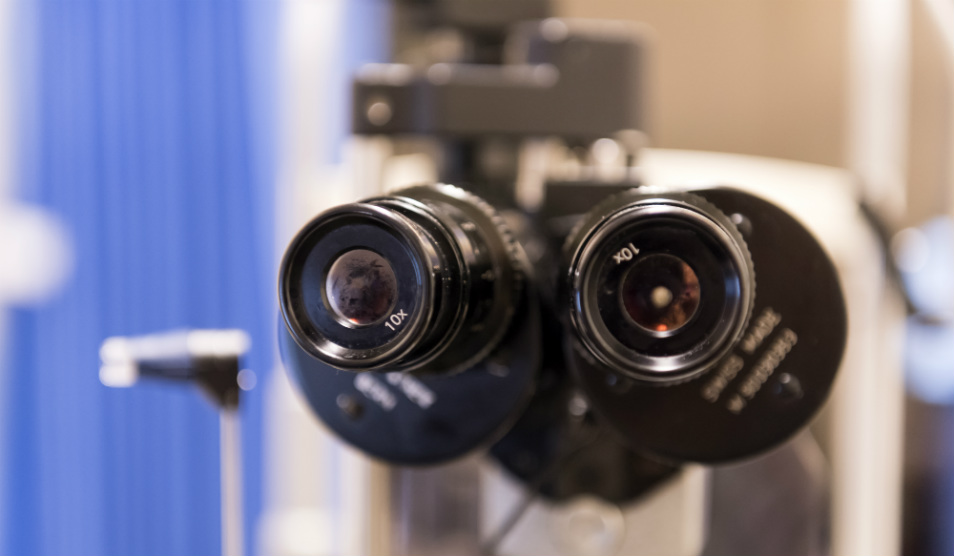Children's ophthalmology
Contact
- Outpatients appointments
- 020 3312 6000
Visitor Information
Translation help:
To translate this page into your preferred language, click the Google Translate icon in the top-right menu and select your desired language.
Our comprehensive service manages all childhood eye and visual development problems. We screen and treat neonates for retinopathy of prematurity and assess inpatients for eye problems.
We treat all childhood eye and visual development disorders such as:
- squints
- double vision
- blocked tear ducks
- amblyopia (lazy eye)
- watery eyes
- red eyes
- lumps and bumps
We also offer an orthoptist and optometrist led fast-track clinic which has a smaller waiting time.
Clinics
St Mary’s Hospital clinic
Address
Paediatric outpatients department
Sixth floor
Queen Elizabeth Queen Mother (QEQM)
St Mary’s Hospital
Praed Street
London W2 1NY
Hours
Monday mornings, Tuesday afternoons, Wednesdays and Fridays all day.
Contact information
Phone: 020 3312 6000
Email: imperial.smhappts@nhs.net
Western Eye Hospital (24-hour emergency eye service)
More information about the ophthalmology accident and emergency service can be found here.
Western Eye Hospital provides a 24-hour walk-in emergency eye service. Children can be sent with a covering letter from their GP or their GP can discuss their case with the on-call ophthalmology registrar via switchboard 020 7886 6666.
Meet the team
Consultant paediatric ophthalmologists
Rashmi Akshikar
Christopher Bentley
Mr Nizar Din
Luis Amaya Pedraza
Orthoptists
Rowena McNamara, head orthoptist
Rima Gokani, deputy head orthoptist
Jamie Spofforth
Keely Penalver
Laura Smith
Paediatric optometrists
Tania Stewart Davies
Michelle Hamilton
Patient information
Before your appointment
We usually see patients for routine new appointments within 12 weeks. For urgent patients, our team will do what we can to offer an appointment sooner depending on the consultant or grading clinician's opinion.
Parents should attend all appointments with their child as they need to be informed of the treatment plan and may need to consent. If a carer or guardian comes they must have a letter giving them authorisation and not be under the age of 18. Though we understand the whole family may wish to attend, the first appointment can take a few hours and it can be distracting having too many family members.
To get the most out of your child’s appointment, it is helpful to bring any relevant information relating to family history of eye problems, birth history and previous eye history, should your child have had their eyes looked at before.
Please bring any glasses that your child has been given by the optometrist if they have seen one and a copy of the prescription. If the glasses are lost or broken it is better to postpone the appointment until your optician has repaired or replaced the glasses.
If your child requires hearing aids please also bring these along with a list of any medications your child takes. You may wish to prepare your child by talking to them about the possibility of needing eye drops.
During your appointment
Your first appointment and assessment will last for approximately two and a half hours long, this is because most children are seen by at least three members of the team and are likely to require eye drops as part of the assessment.
Please note that we are a teaching hospital, so medical students may be present for some appointments. If you do not wish to have them in the room please let the nurse or doctor know and the students will be asked to step outside.
As part of your assessment you may see an orthoptist, an ophthalmologist, and/or an optometrist/optician. Each of these staff members may perform tests during the assessment.
Orthoptist
This is the first person your child will normally be tested by in the clinic. An orthoptist is a specialist that deals with children’s sight and has been trained to test for squints (strabismus) and problems with how the two eyes work together (binocular vision). During an examination with an orthoptist, your child may look at pictures or letters, or may simply be observed to see how they respond to different objects/toys they see.
Ophthalmologist
This is an eye doctor who will examine the health of your child’s eyes. The ophthalmologist may need to add drops to your child’s eyes in order to enlarge the black (pupil) of the eye, which will enable the doctor to examine inside the eye. During the examination your child may look at some lights or be examined with a special machine.
Optometrist/optician
An optometrist or optician specialises in assessing for glasses. The optometrist may shine a light in your child’s eyes and hold up different lenses to determine if they need glasses.
After your appointment
Your child may be given drops to treat eye infections, prescribed glasses to correct focusing errors and/or patching treatment for a lazy eye (amblyopia).
If an operation is necessary, the doctor will explain the type of surgical procedure required and will include the child on the waiting list for surgery.
Referrals
GP and secondary care
Referrals may be made for telephone advice, email advice, outpatient opinions or hospital admission. The paediatric dietitians will take referrals from all paediatric teams at the Trust and will only accept referrals from the community if they are also under a consultant at the Trust.
To refer a child to the St Mary’s paediatric dietetic service, please use the contact details below:
St Mary’s Hospital department of nutrition and dietetics
Ground floor
Cambridge wing
St Mary’s Hospital
Praed Street
London W2 1NY
Katie Elwig, clinical lead dietitian (paediatrics)
Phone: 020 3312 1127
Email: catherine.elwig@nhs.net
To refer a child to the Hammersmith paediatric dietetic service, please use the contact details below:
Children’s outpatient department
Ground floor
D block
Hammersmith Hospital
Du Cane Road W12 0HS
Caroline King, clinical lead dietitian (neonates)
Phone: 020 3313 5805
Email: caroline.king12@nhs.net
GP advice
If you have questions about a patient or a referral, please call:
- St Mary’s Hospital: 020 3312 1127
- Hammersmith Hospital: 020 3313 5805
Self-referrals
Paediatric patients can only self-refer if they are under a consultant within the Trust. If you are under our care and would like to self-refer please do so by contacting the lead clinical lead dietitians listed above.
Latest news See all news
-
 Read the full story
Read the full storySt Mary’s trialling 15-minute blood test for life-threatening conditions in children
St Mary’s Hospital is one of three hospitals involved in an NHS trial to find out if an innovative 15-minute blood test can diagnose children with potentially life-threatening infections.
-
 Read the full story
Read the full storyFinalists at HSJ Digital Awards
Imperial College Healthcare has been shortlisted for five HSJ Digital Awards.
-
 Read the full story
Read the full storyWorld-first gene-editing treatment for blood disorders including sickle cell disease approved for use in the NHS
NICE has today approved a gene-editing treatment for use with NHS patients over the age of 12 with a severe form of sickle cell disease.

